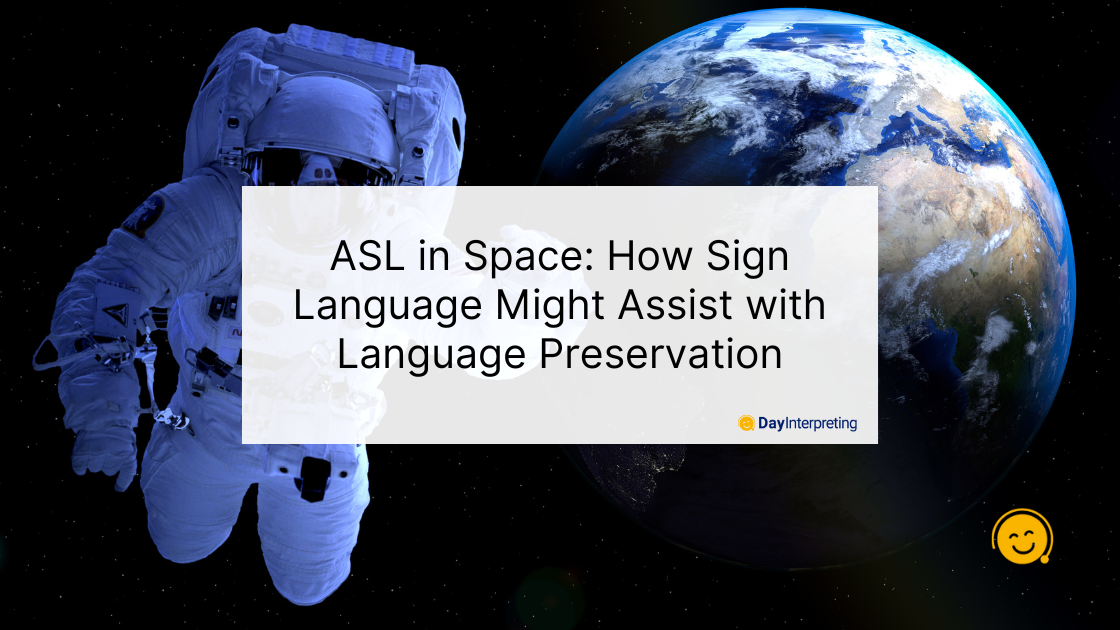As scientists and engineers gear up for potential travel into interstellar space, a new report delves into a peculiar issue of space communication – the potential changes in language during long space voyages. Deep space missions bring to light fascinating prospects, and one topic of particular interest is how communication and future space travel might impact language preservation during extended journeys to distant stars. In this article, we explore the role of ASL in space, not just for use by the deaf community, but for the sake of linguistic preservation throughout space exploration!
The Challenge of Linguistic Evolution in Space Communication
In a recent paper published in the European Space Agency’s Acta Futura, American researchers Professors Andrew McKenzie from the University of Kansas and Jeffrey Punske from Southern Illinois University discuss the linguistic concerns and the deep and lasting impact that could arise during these interstellar journeys. They explain that languages naturally evolve and change over time, especially as communities become more isolated from each other. The prolonged isolation experienced during deep space missions could lead to substantial linguistic divergence, making it difficult for those on the spacecraft to communicate effectively with their counterparts back on Earth.
The Role of ASL in Space Communication
To mitigate communication problems on a distant spacecraft and aid in language preservation, the researchers propose including language experts as part of the spaceship crews. However, another promising solution lies in exploring the use of American Sign Language (ASL) as a form of communication. Sign languages are, contrary to popular belief, is not just beneficial for the hearing impaired.
ASL, a complete and natural language expressed through precise hand movements, facial expressions, and body language, has a unique advantage in interstellar communication. Unlike spoken languages that may undergo significant changes due to isolation, ASL’s visual nature remains stable and accessible, according to scientific research. This resilience makes ASL a strong candidate for preserving communication and culture during long journeys through the cosmos.
The Benefits of American Sign Language in Space Language Preservation
Sign language can ensure effective communication among spacefarers even as the distance between them and Earth’s ground stations increases. The visual nature of sign language would transcend the limitations imposed by the vastness of space, enabling space travelers to stay connected with their home planet despite linguistic shifts that may occur on the spacecraft.
Moreover, the potential role of sign language in language preservation is of great significance. As generations pass on the spaceship, new concepts, social issues, and unique experiences will emerge, giving rise to new vocabulary specific to the spacecraft’s community. By incorporating sign language, spacefarers can record and retain these linguistic changes more effectively, thus preserving the heritage of their language and culture throughout their interstellar journey.
Cultural Preservation in Isolated Space Missions
As the massive spaceships venture into interstellar space, they carry not only the physical presence of humanity but also the rich tapestry of human culture. The prolonged isolation encountered during these epic voyages will undoubtedly leave an indelible mark on the cultural evolution of those aboard.
The use of sign language further enhances cultural preservation. It serves as a medium to convey language and the diverse nuances of culture, traditions, and identity. As the spacefarers journey through the cosmic sea, they will be presented with a unique opportunity to forge entirely new ways of life. Sign language can aid in retaining and disseminating these cultural narratives, creating a sense of continuity and connection to their ancestral homeland even as memories of Earth become distant.
The Significance of AI in Supporting ASL Communication
In this brave new era of interstellar travel, advanced AI language translation systems become invaluable allies in bridging communication gaps. While ASL remains stable and robust, AI-powered translation systems can assist in ensuring seamless communication between space travelers and their counterparts on Earth.
AI translators can learn and adapt to the linguistic changes that occur over time, capturing shifts in ASL’s grammar, vocabulary, and expressions. Furthermore, AI can play a crucial role in documenting and preserving the linguistic journey of interstellar travelers, ensuring that their experiences and cultural heritage are safeguarded for future generations.
The Future of ASL in Space
As we venture into the uncharted territories of interstellar space, the potential challenges of linguistic evolution become apparent. However, ASL and proper interpretation of it serves as a potent tool for communication and language preservation and with the support of AI translation systems, we find hope in bridging the gap between space travelers and Earth. ASL’s visual and stable nature may prove instrumental in preserving language, culture, and human identity during extended deep space missions.
The idea of ASL in space communication remains a possibility worth exploring further, and the future might see ASL play an essential role in preserving language and communication as we journey into the cosmos.





0 Comments